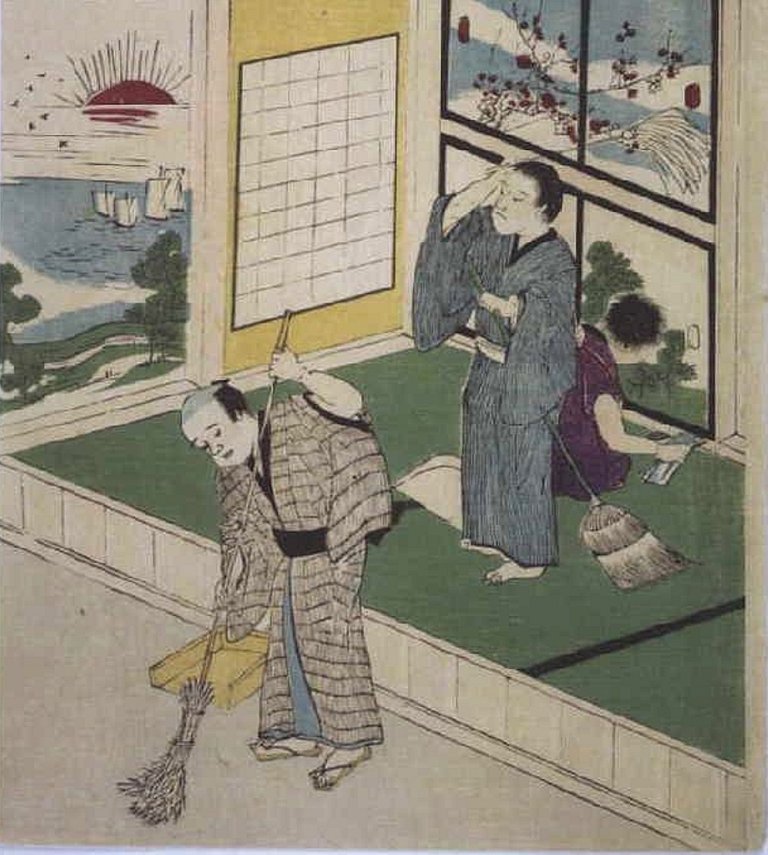Written several days ago on the last day of the year as I sat at my desk to finish my work for the year.
hopelessly messy
this new year's eve


I suspect most of you can relate to this.
I try to be organized and clean and I can usually manage these things pretty well, but things seem to quickly fall apart after a few days. So they a few days after that I'll take a few hours to clean and organized and it will be nice and neat for a few days... before falling into disarray again. It seems to be a repeating cycle I'm stuck in here.
Such is life, eh? I need to embrace my inner Marie Kondo (KonMari) and find a way to keep it organized permanently. Ah well, but that day is not today.
So anyway, the New Year came and has been with us a couple weeks now and my desk is still hopelessly messy. The New Year didn't fix that one! (not yet anyway)
There is a tradition in Japan to clean the house before the New Year. It's kind of a purity thing, or at least it originally was. Most people still follow this one and always try to get every room pretty clean before the year turns over. We cleaned my house so it was fairly clean, but my desk didn't make the cut. Whoops. I hope good luck didn't pass me by as a result!
As far as I know there is no traditional kigo (season word) for New Year's Eve. There are several similar ones. I don't have my saijiki (kigo encyclopedia) handy at the moment, but offhand we have last day of the year, day before New Year's, and variants of those. But I see no reason why New Year's Eve can't be a modern kigo.
Bashō always said that haiku should be written in the moment and only about things that are either currently happening to you or that you can currently observe. In other words, they are about something that is going on right now, not an imagined thing. Now don't get me wrong, I think it's fine for most poets to ignore that guideline these days, but I personally always try to follow it. It makes makes the haiku a little more real to me, if that makes sense.
Anyway, I'm not off to go stare and my messy desk...
❦


 |
David LaSpina is an American photographer and translator lost in Japan, trying to capture the beauty of this country one photo at a time and searching for the perfect haiku. |
If this blog post has entertained or helped you, please follow/upvote/reblog. If you want to further support my writing, donations are welcome.
Nice original haiku!
I am relearning about Basho through your posts! I remember my Japanese teachers explained about him like that but I had forgot for a long time.
I'm happy to hear that!
Messy bard's desk. That's understandable. It seems that poets do experience that.
New year. May the blessings be with you this year and the more haiku you write, @dbooster.
Thank you! 😃
Greetings, dear hiver @dbooster. Exemplary formation of literary construction. This is how the main actor fulfils his functions, the spirit flows to occupy its place in space. It is in the immediate when the work is constructed, the artist is executing his will, the exemplary work is read on the canvas. Indian ink covers the parchment.
A healthy taste of a good tea has your haiku.
a majority of people will certainly chime with the idea you captured.
did you write this in English, or in Japanese & then translate?
Usually I write my own in English. Sometimes Japanese if the words pop into my head.
Perfect haiku for the new year. :)
I find it interesting that Japan has been celebrating the New Year on January 1 since 1873. I wonder how the tradition has changed since ancient times. A clean house sounds like a great way to welcome the new year.